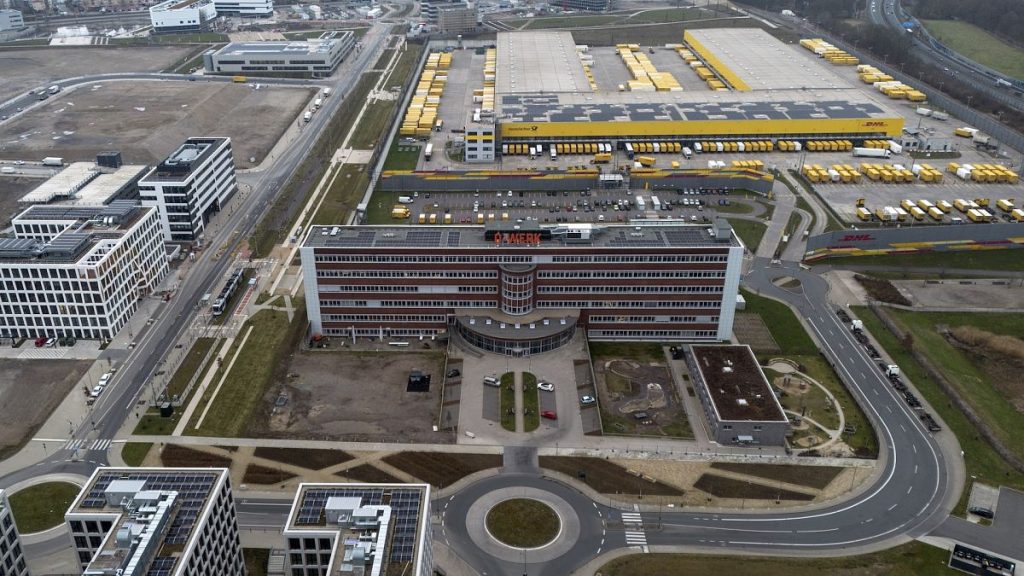Summarize this content to 2000 words in 6 paragraphs in Arabic
Germany’s economic sentiment surged in February, with the ZEW Indicator rising 15.7 points to 26.0, the highest since July 2024. Optimism was fuelled by ECB rate cuts, hopes for fiscal stimulus, and a brighter outlook for construction. Investors turned bullish on European stocks.
ADVERTISEMENTGermany’s economic sentiment surged sharply in February, with rising optimism among financial experts fuelling hopes of a recovery for Europe’s largest economy just days ahead of the federal elections.The ZEW Indicator of Economic Sentiment rose by 15.7 points to 26.0, surpassing market expectations of 20. This marks the strongest monthly increase in two years and the highest reading since July 2024. The improvement in sentiment was driven by increasing confidence in the construction sector, buoyed by the European Central Bank’s (ECB) recent interest rate cut and signals of further monetary easing. Hopes for a more proactive fiscal stance from the next German government also played a role in lifting expectations.In February, the ECB lowered interest rates by 25 basis points to 2.75%, reiterating that the progress to return to the 2% inflation target remains well on track. “Shortly before the day of the federal election, economic expectations have clearly improved in February. This rising optimism is probably due to hopes for a new German government capable of action,” said ZEW President Achim Wambach, PhD. “Also, after a period of absent demand, private consumption can be expected to gain momentum in the next six months. And the recent move by the ECB to cut interest rates in response to sluggish economic activity in the Monetary Union is likely to have contributed to the better outlook for the construction industry,” he added.While forward-looking sentiment improved, the assessment of the current economic situation remained deeply negative, though slightly better than in January. The corresponding indicator edged up by 1.9 points to -88.5.The optimism extended beyond Germany, as financial market experts’ sentiment regarding the eurozone economy also strengthened. The ZEW indicator for the bloc climbed by 6.2 points to 24.2, while the gauge of the current economic situation improved by 8.5 points to -45.3.Investors grow more bullish on European equitiesThe improved outlook for Germany coincides with a wave of investor optimism towards European markets. According to Bank of America’s latest fund manager survey for February, investor confidence in the European economy has risen significantly, with a net 45% of respondents expecting stronger growth over the next 12 months – up from just 9% last month and the highest level since May 2024.Investors view German fiscal stimulus as the most likely catalyst for growth, followed by further ECB easing. Inflation expectations are also shifting: a net 59% of fund managers anticipate lower inflation in Europe, compared with only 4% who expect a decline in global inflation – the weakest reading in two years.Bullishness on European equities is also growing. A net 66% of fund managers expect near-term gains from their current all-time highs, up from 44% in January, while 76% foresee further upside over the next year. Respondents expect European stocks to be the best-performing equity market globally in 2025, with a net 12% now overweight on European equities – compared to December, when a net 25% were underweight.Market reaction muted as geopolitics take centre stageDespite the upbeat ZEW survey, market movements were largely dictated by geopolitical developments. The DAX index reached a fresh record high at the open, touching 22,851 points before easing slightly to 22,750 points.On Monday, European leaders met in Paris at the invitation of French President Emmanuel Macron to discuss the possible deployment of European troops to Ukraine and increased defence spending. However, the meeting concluded without concrete decisions. Meanwhile, US and Russian officials were set to meet in Saudi Arabia on Tuesday to explore potential conflict resolutions, with Ukraine and European nations excluded from the talks.ADVERTISEMENTThe euro was down 0.2% to 1.0460 against the US dollar by 11:30 CET, while the Euro STOXX 50 edged lower by 0.1%. Among top gainers were ING and Société Générale, up 1.4% and 1.3%, respectively. On the losing side, Kering and Carrefour dropped 1.8% and 1.5%, respectively.
rewrite this title in Arabic Germany's economic sentiment jumps to highest level since last July
مقالات ذات صلة
مال واعمال
مواضيع رائجة
النشرة البريدية
اشترك للحصول على اخر الأخبار لحظة بلحظة الى بريدك الإلكتروني.
© 2025 جلوب تايم لاين. جميع الحقوق محفوظة.


